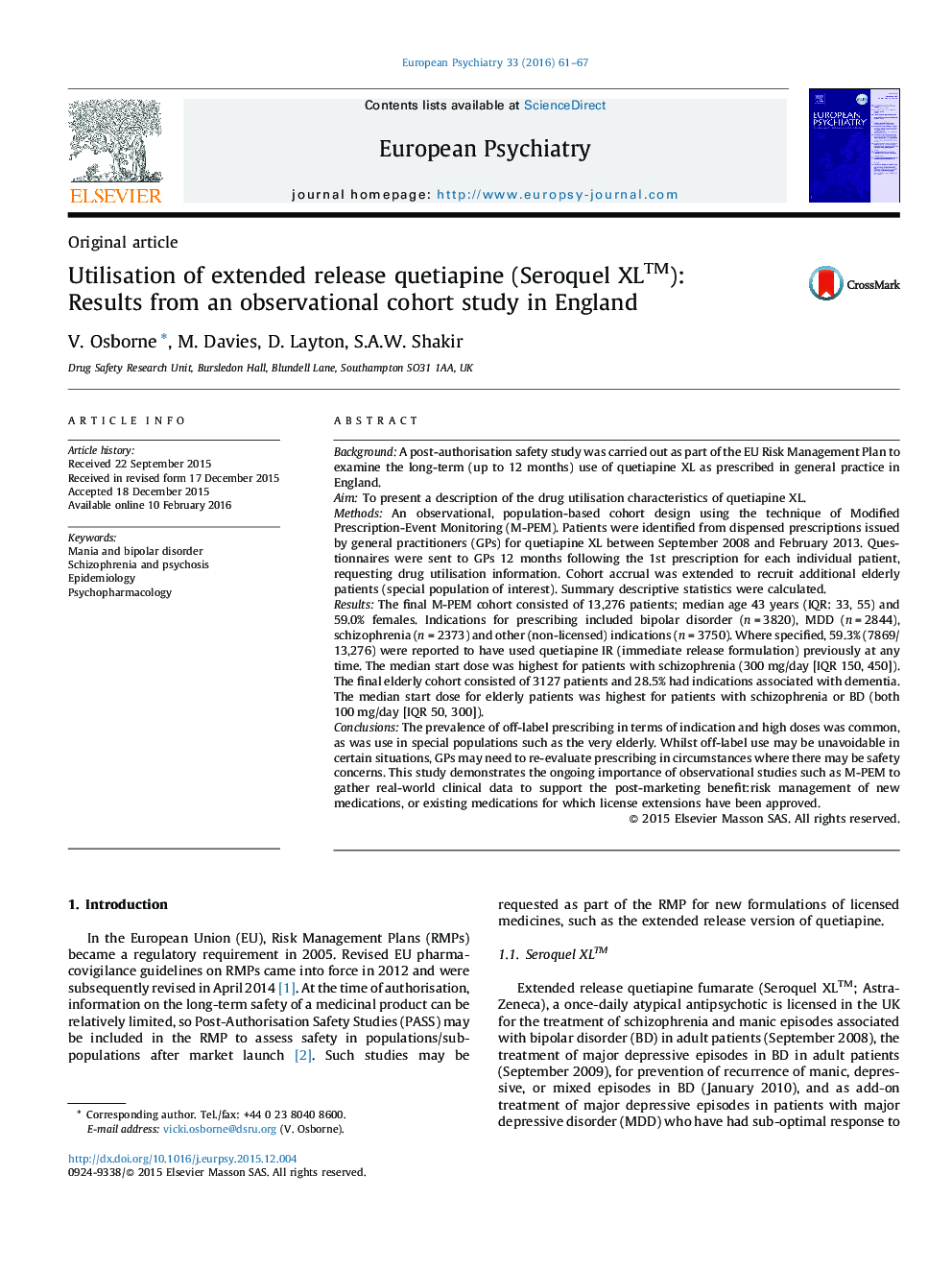| کد مقاله | کد نشریه | سال انتشار | مقاله انگلیسی | نسخه تمام متن |
|---|---|---|---|---|
| 4183469 | 1608057 | 2016 | 7 صفحه PDF | دانلود رایگان |

BackgroundA post-authorisation safety study was carried out as part of the EU Risk Management Plan to examine the long-term (up to 12 months) use of quetiapine XL as prescribed in general practice in England.AimTo present a description of the drug utilisation characteristics of quetiapine XL.MethodsAn observational, population-based cohort design using the technique of Modified Prescription-Event Monitoring (M-PEM). Patients were identified from dispensed prescriptions issued by general practitioners (GPs) for quetiapine XL between September 2008 and February 2013. Questionnaires were sent to GPs 12 months following the 1st prescription for each individual patient, requesting drug utilisation information. Cohort accrual was extended to recruit additional elderly patients (special population of interest). Summary descriptive statistics were calculated.ResultsThe final M-PEM cohort consisted of 13,276 patients; median age 43 years (IQR: 33, 55) and 59.0% females. Indications for prescribing included bipolar disorder (n = 3820), MDD (n = 2844), schizophrenia (n = 2373) and other (non-licensed) indications (n = 3750). Where specified, 59.3% (7869/13,276) were reported to have used quetiapine IR (immediate release formulation) previously at any time. The median start dose was highest for patients with schizophrenia (300 mg/day [IQR 150, 450]). The final elderly cohort consisted of 3127 patients and 28.5% had indications associated with dementia. The median start dose for elderly patients was highest for patients with schizophrenia or BD (both 100 mg/day [IQR 50, 300]).ConclusionsThe prevalence of off-label prescribing in terms of indication and high doses was common, as was use in special populations such as the very elderly. Whilst off-label use may be unavoidable in certain situations, GPs may need to re-evaluate prescribing in circumstances where there may be safety concerns. This study demonstrates the ongoing importance of observational studies such as M-PEM to gather real-world clinical data to support the post-marketing benefit:risk management of new medications, or existing medications for which license extensions have been approved.
Journal: European Psychiatry - Volume 33, March 2016, Pages 61–67